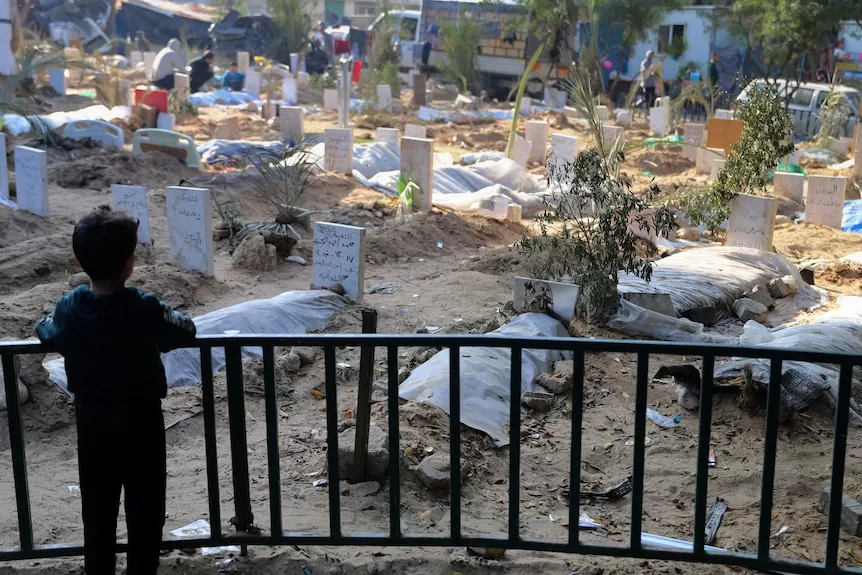- In short: Israeli Prime Minister Benjamin Netanyahu has dissolved the influential war cabinet tasked with steering the war in Gaza.
- The move was expected following the departure of Benny Gantz, a centrist former military chief, earlier this month.
- What’s next? Mr Netanyahu is expected to hold smaller forums with some of his government members for sensitive issues.
Israeli Prime Minister Benjamin Netanyahu has dissolved the cabinet tasked with overseeing the war in Gaza, according to Israeli officials.
The war cabinet was dissolved on Monday local time following the departure of Benny Gantz, a centrist former military chief, earlier this month.
Opposition politician Mr Gantz had joined the coalition in the early days of the war and after his departure, it was widely expected Mr Netanyahu would dissolve the cabinet.
Mr Netanyahu had faced demands from the nationalist-religious partners in his coalition, Finance Minister Bezalel Smotrich and National Security Minister Itamar Ben-Gvir, to be included in the war cabinet.
Mr Gantz, Mr Netanyahu and Defence Minister Yoav Gallant were the cabinet’s key members and the trio made decisions together throughout the war.
Israeli officials, who spoke on condition of anonymity to the Associated Press because they were not authorised to discuss the change with the media, said that going forward Mr Netanyahu would hold smaller forums with some of his government members for sensitive issues.
Reuters also reported the dissolution.
Mr Gantz, a longtime political rival of Mr Netanyahu’s, joined the government as a show of unity after Hamas’ October 7 attack on southern Israel.
He left the government earlier this month, citing frustration with Mr Netanyahu’s handling of the war.
Mr Gantz’s departure, while not posing a direct threat to Mr Netanyahu’s rule, rocked Israeli politics at a sensitive time.
The popular former military chief was seen as a statesman who boosted Israel’s credibility with its international partners at a time when Israel finds itself at its most isolated.
The move comes as the Israeli military said it would hold daily tactical pauses in military activity in parts of southern Gaza to allow more aid to flow into the area, where international aid organisations have warned of a growing humanitarian crisis among Palestinian civilians.
On Sunday, Mr Netanyahu criticised the plans.
“When the prime minister heard the reports of an 11-hour humanitarian pause in the morning, he turned to his military secretary and made it clear that this was unacceptable to him,” an Israeli official said.
The military clarified that normal operations would continue in Rafah.
Mr Netanyahu’s government is Israel’s most religious and right-wing ever.
In Israel’s fractious parliamentary system, Mr Netanyahu relies on a group of small parties to help keep his government afloat and without the support of Mr Gantz’s party, Mr Netanyahu could be more beholden to the far-right allies who have repeatedly pledged to topple the government if their demands are not met.
Critics say Mr Netanyahu’s wartime decision-making has been influenced by ultranationalists in his government who oppose a deal that would bring about a ceasefire in exchange for the release of hostages.
They have voiced support for the “voluntary migration” of Palestinians from the Gaza Strip and reoccupying the territory.
Mr Netanyahu denies the accusations and says he has the country’s best interests in mind.
AP/Reuters
